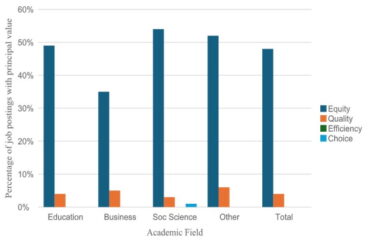
When it comes to hiring in higher education, scholars and administrators are obsessed with the notion of equity far above the other traits of quality, efficiency, and choice, new research shows.
Employers seeking faculty focused on “equity” vastly outpaced the terms those seeking faculty focused on “quality,” “efficiency” and “choice” within roughly 67,000 job postings published by the Chronicle of Higher Education since 2017, the research found.
A team of University of Pittsburgh scholars found that 48 percent of the roughly 67,000 job postings within the fields of education, business management, and social and behavioral sciences “were identified as having equity as the principal value,” their paper states.
“In contrast, quality was identified as the principal value in less than 5 percent of postings, while choice and efficiency are present even more rarely.”
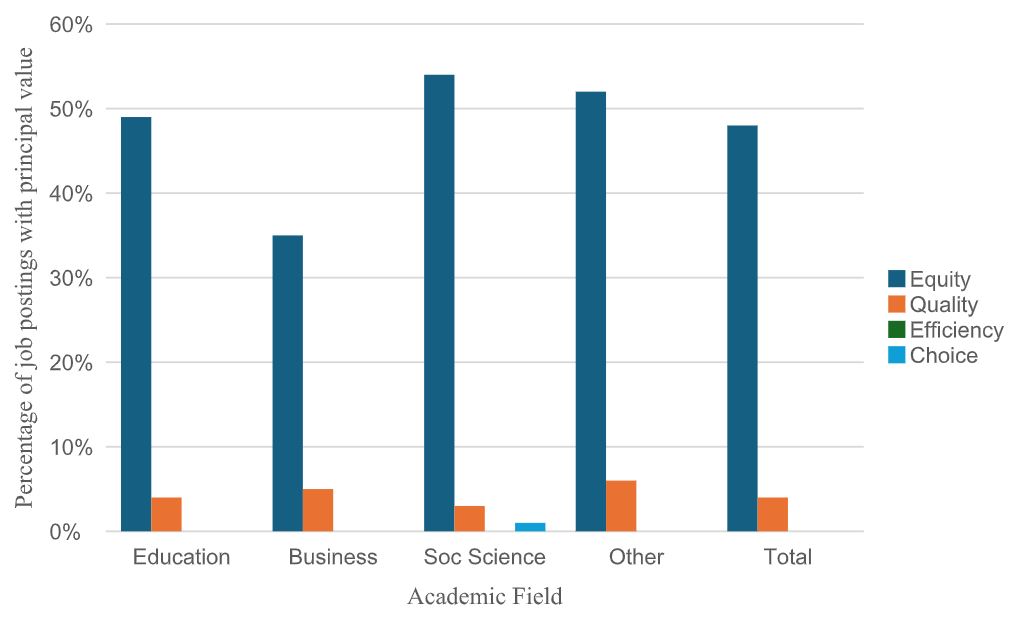
The prevalence of equity values also increased dramatically over time, peaking in 2022 before declining somewhat in 2023 and the first part of 2024.
Led by Sean Kelly, a professor in the School of Education, along with Diana Litman, professor of computer science, the research team used advanced automated methods to scrape and analyze tens of thousands of job openings, known as a text-as-data approach.
Titled “Changing Value Dimensions in Higher Education? Evidence from Job Postings in Education, Business, and the Social Sciences,” the project was supported by the Foundation for Individual Rights and Expression’s Free Inquiry Grant Program.
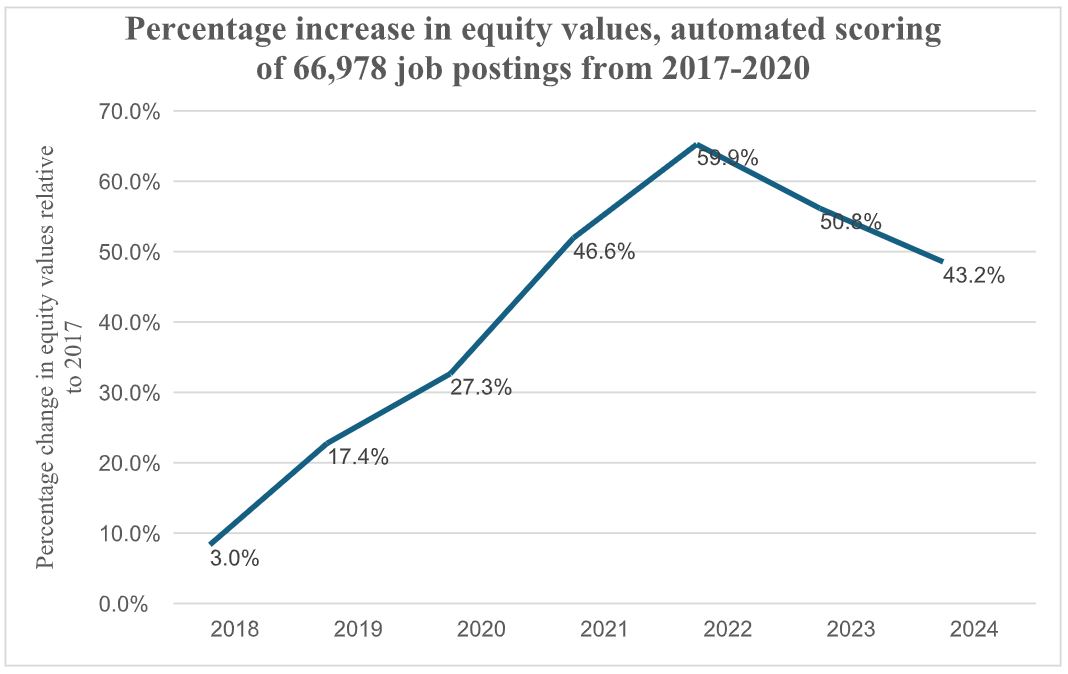 The forthcoming paper is under review by a journal but is available upon request from Professor Kelly.
The forthcoming paper is under review by a journal but is available upon request from Professor Kelly.
“The findings of this study are remarkably clear. Equity values are for more prevalent than other values in higher education job postings,” the paper states. “…The simplest explanation is that the administrators who composed these postings, the committees that approved them, etc., are themselves preoccupied almost exclusively with equity values, and thus, the postings logically reflect carefully crafted efforts to express that preoccupation.”
Kelly, in a recent telephone interview with The College Fix, said the key to making this research effective was by comparing the preoccupation with “equity” with the prevalence of “quality,” “efficiency” and “choice.”
“Unless you look at the prevalence of the other values that might be there you don’t know if there is an imbalance,” he said.
While some might argue no amount of emphasis on equity is too much, Kelly said that other positive traits should matter, too.
“We all are concerned with equity,” he added, “but when most of us think about school, society and other facets of our life, we are also concerned with quality and efficiency and choice,” yet the latter three are “vanishingly rare in postings.”
He said he hopes the study’s results give hiring committees pause. “I hope they ask themselves, ‘Do we need to have a preoccupation with specific values here? Maybe not.’”
Asked to weigh in on the findings, University of Pittsburgh Professor M. Najeeb Shafiq said the focus on equity might have its downsides.
“Universities should value things like equity (also known as ‘fairness’), but they also need to make sure they hire the best teachers and researchers,” he told The College Fix via email.
“For example, it might discourage talented people with different viewpoints from applying for jobs because they feel pressured to show they strongly support equity in their applications, even if it’s not their top priority,” said Shafiq, a professor of education, economics, and international affairs. “This could limit the range of ideas and perspectives in universities, which is crucial for a healthy learning environment.
“This could also damage people’s trust in universities,” he added. “If it seems like universities only care about equity, people might start to question whether they’re truly focused on pursuing the truth and finding the best teachers and researchers.”
MORE: ‘Countercultural groundswell’: Yale freshmen want stronger free speech protections
IMAGE: Sean Kelly, University of Pittsburgh
Like The College Fix on Facebook / Follow us on Twitter



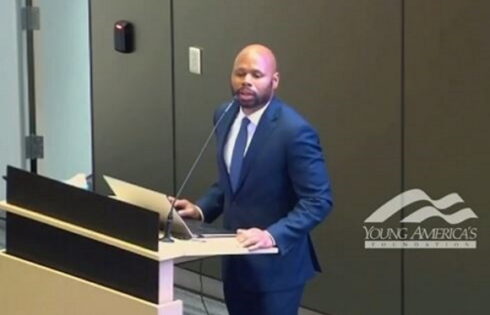
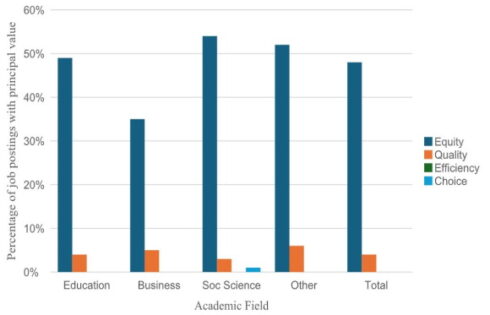

Please join the conversation about our stories on Facebook, Twitter, Instagram, Reddit, MeWe, Rumble, Gab, Minds and Gettr.